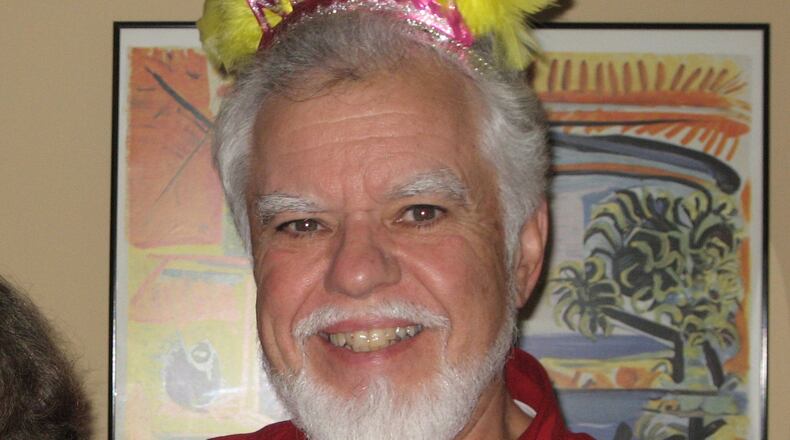In the 1970s, most textbooks about Georgia history glossed over topics such as slavery and Reconstruction, the civil rights movement and voter disenfranchisement. Atlanta City Schools used its own series of books, but teachers statewide wanted a better, less biased source for their students. Faculty members at the University of Georgia’s Institute of Government decided to create one.
The result was the 1982 publication of “The Georgia History Book,” written by historian and institute member Lawrence “Larry” Hepburn. The book included “an accurate picture of the shameful parts of the state’s history,” said his former colleague, Edwin Jackson. “Teachers loved it. That was the first time the university ventured into the public school classroom for civics education.”
Hepburn’s editor, Emily Honigberg, said his work “was a joy to edit. My job was mainly to shape and edit his writing to an eighth-grade reading level. He was dedicated to presenting a true picture of Georgia for kids that age.”
When the history book needed updating, a team at the institute started with Hepburn’s original text, “and padded it out with sections on Georgia government and politics,” said Mary Stakes, one of the authors of the resulting “The Georgia Studies Book.” “Larry knew a lot of what was going on and was very insightful.”
Born September 26, 1940, in the Bronx, New York, to Marjorie Jackson Hepburn and Lawrence Loftus Hepburn, Larry was reared in St. Petersburg, Florida. He died November 23 in Athens from cancer. He was 82. Friends who visited him while he was ill said he was as alert and conversant as ever. His wife and collaborator of 53 years, Mary Hepburn, died two months before him. He is survived by their daughter Valerie Hepburn and her husband David Hayes.
Jackson, Honigberg and other friends and colleagues remember Larry Hepburn as a non-judgmental and generous person who came “to love all things Georgia,” said his daughter. He loved classical music and he liked to cook, two passions he found as a teenager in St. Petersburg. Larry Hepburn like to gather stories about Marvin Griffin. Jimmy Carter and other South Georgia officials, and he admired Democrat Ellis Arnall, whom he considered Georgia’s most effective and progressive governor. When Zell Miller ran for lieutenant governor, both Larry and Mary Hepburn felt they had to campaign for him, someone who, like them, had taught history and political science to college students.
“Larry loved to drive the Georgia backroads and see what made every community unique,” said Valerie Hepburn. A trip to Florida to visit Mary’s mother could take days as the family meandered around the state, stopping, say, in Muesella to eat peach ice cream and buy peaches at the well-known Dickey Farms or in Pelham to see the massive Hand Trading Company building — the largest department store in Georgia when built in 1914. “He always knew where you could find the best barbecue. And we went to every state park in Georgia.”
Armed with Ph.D.’s in social science education from Florida State University, the Hepburn family moved to Athens in 1969. Larry joined the education faculty at Agnes Scott College, in Atlanta and Mary worked in the UGA College of Education before heading the division of civic education at the Institute of Government.
In 1978, Larry moved to the institute, where his deep knowledge of and love for Georgia informed the many books he wrote and edited. In addition to textbooks, he also did research and authored reports and monographs on Georgia history, culture and politics for county and state officials. Issues he focused on ranged from county consolidation to the question of “how many state employees is too many?”
For years, he directed the Biennial Institute, which helps orient newly elected members of the General Assembly to the legislative process and long-time members to emerging state challenges. He retired in 2000.
On the family’s property in Bogart, Larry established a grape arbor in the front yard and made wine he named “Oconee Red.” Every Halloween, the Hepburns would host a big costume party, inviting friends and colleagues. Friends remembered that Larry, always celebrated Beethoven’s birthday.
“Larry was curious about everything,” said Edwin Jackson. “He loved Georgia and worked to make it better.”
About the Author
The Latest
Featured


